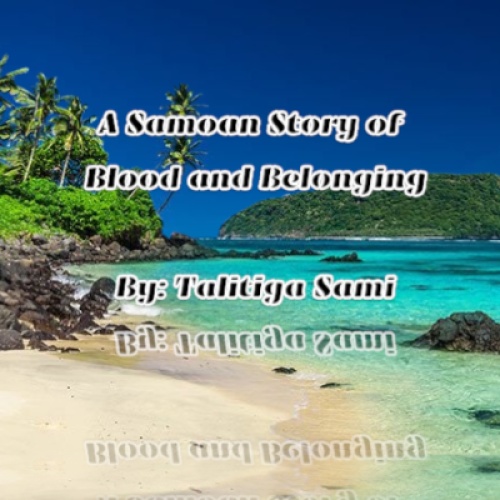Returning to Pago Pago was like stepping back in time. The familiar sights and sounds of my childhood flooded my senses, triggering a flood of memories both pleasant and painful. The fale, the church, the faces of friends and neighbors - all were a part of my past, a tapestry woven with threads of love, tradition, and secrets.
But beneath the surface of familiarity, tensions simmered. My relationship with my older sister, Taupou, had always been strained, our personalities clashing like opposing forces. She was the epitome of order and discipline, adhering rigidly to our parents' rules and expectations. I, on the other hand, resented authority and chafed under the weight of tradition.
Our differences often manifested in heated arguments, fueled by years of unspoken resentment. We saw the world through different lenses, our values and priorities sharply contrasting. Taupou viewed my past rebellion with disdain, while I perceived her conformity as stifling and judgmental.
One particularly explosive fight erupted during my mother's illness. We were arguing about the caregiving responsibilities, our voices escalating in volume and intensity. In a moment of rage, Taupou lashed out, her words cutting through me like a knife.
"You have no right to talk to me like that," she spat, her eyes blazing with anger. "You're not even really one of us. You're adopted!"
The words hung in the air, heavy with venom. The truth, once a carefully guarded secret, had been weaponized, used to inflict maximum pain. The wound that I had struggled to heal was ripped open anew, unleashing a torrent of emotions.
I felt the weight of her accusation, the sting of rejection, the deep-seated insecurities that had haunted me since childhood. I was once again the outsider, the interloper, the one who didn't truly belong. The progress I had made in Hawaii seemed to unravel before my eyes, leaving me feeling vulnerable and exposed.
The pain was almost unbearable. I fled the house, seeking refuge in the familiar embrace of the island. I walked for hours, lost in my thoughts, trying to make sense of the tangled web of emotions that consumed me.
Taupou's words had reignited the old wounds, reminding me of the secret that had shaped my life. But they also forced me to confront a deeper truth: that I had allowed the past to define me, to dictate my self-worth. I had allowed the secret of my origins to hold me captive, preventing me from fully embracing my identity and my potential.
As I stood on the shore, looking out at the vast expanse of the Pacific Ocean, I realized that I could no longer run from my past. I had to face it, to acknowledge the pain, and to choose a different path forward. I had to learn to forgive, not only those who had hurt me but also myself. I had to learn to embrace my story, to find strength in my vulnerability, and to define myself not by my origins but by the choices I made.




